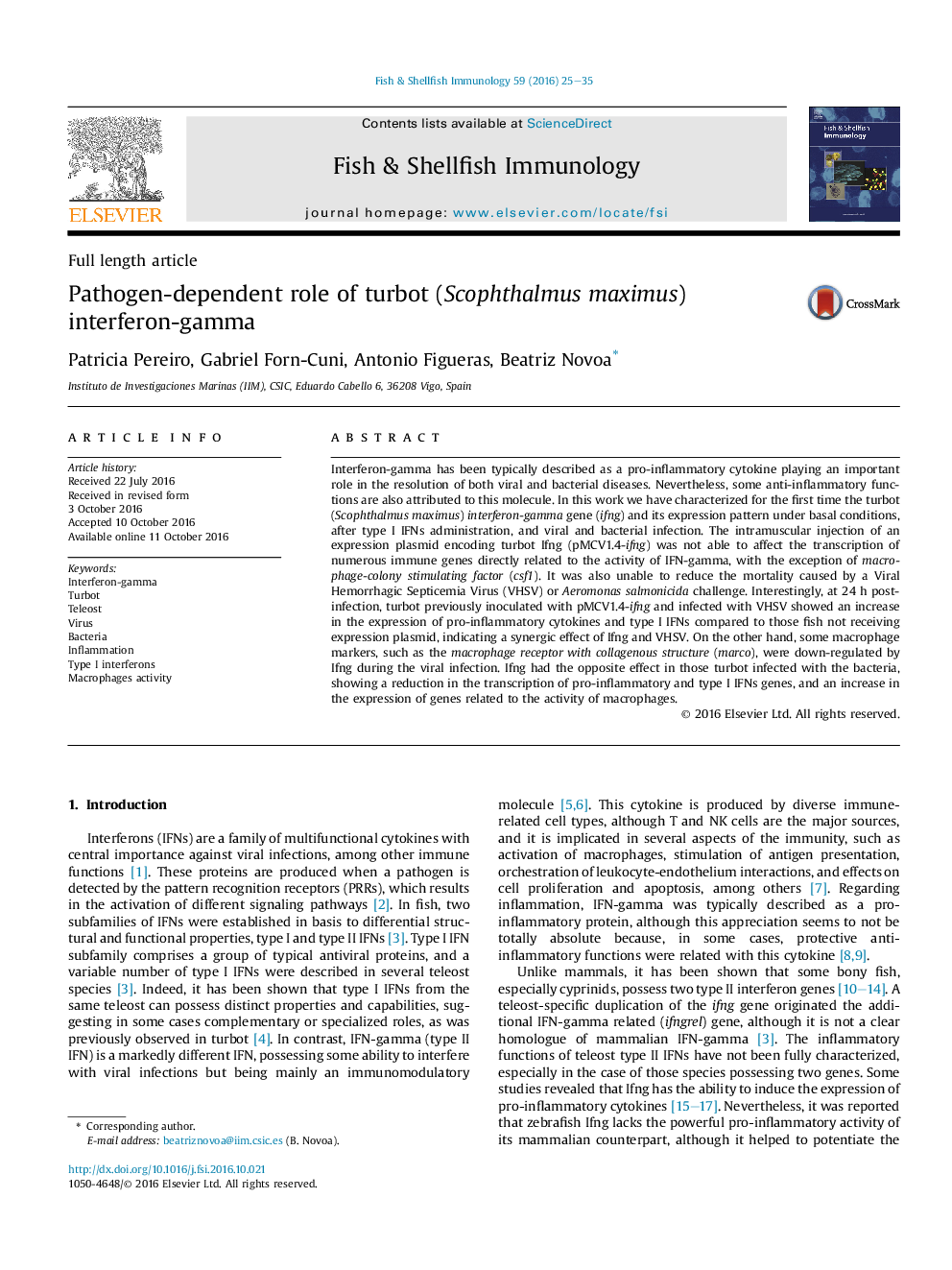| Article ID | Journal | Published Year | Pages | File Type |
|---|---|---|---|---|
| 5540771 | Fish & Shellfish Immunology | 2016 | 11 Pages |
â¢Turbot (Scophthalmus maximus) ifng gene was characterized in this work.â¢Ifng potentiated inflammation and type I IFN production during a VHSV infection.â¢Ifng had an anti-inflammatory effect during an A. salmonicida challenge.â¢Ifng modulated the expression of macrophage-related genes in a pathogen-dependent response.â¢A dual role of turbot Ifng depending on the type of infection is proposed.
Interferon-gamma has been typically described as a pro-inflammatory cytokine playing an important role in the resolution of both viral and bacterial diseases. Nevertheless, some anti-inflammatory functions are also attributed to this molecule. In this work we have characterized for the first time the turbot (Scophthalmus maximus) interferon-gamma gene (ifng) and its expression pattern under basal conditions, after type I IFNs administration, and viral and bacterial infection. The intramuscular injection of an expression plasmid encoding turbot Ifng (pMCV1.4-ifng) was not able to affect the transcription of numerous immune genes directly related to the activity of IFN-gamma, with the exception of macrophage-colony stimulating factor (csf1). It was also unable to reduce the mortality caused by a Viral Hemorrhagic Septicemia Virus (VHSV) or Aeromonas salmonicida challenge. Interestingly, at 24Â h post-infection, turbot previously inoculated with pMCV1.4-ifng and infected with VHSV showed an increase in the expression of pro-inflammatory cytokines and type I IFNs compared to those fish not receiving expression plasmid, indicating a synergic effect of Ifng and VHSV. On the other hand, some macrophage markers, such as the macrophage receptor with collagenous structure (marco), were down-regulated by Ifng during the viral infection. Ifng had the opposite effect in those turbot infected with the bacteria, showing a reduction in the transcription of pro-inflammatory and type I IFNs genes, and an increase in the expression of genes related to the activity of macrophages.
